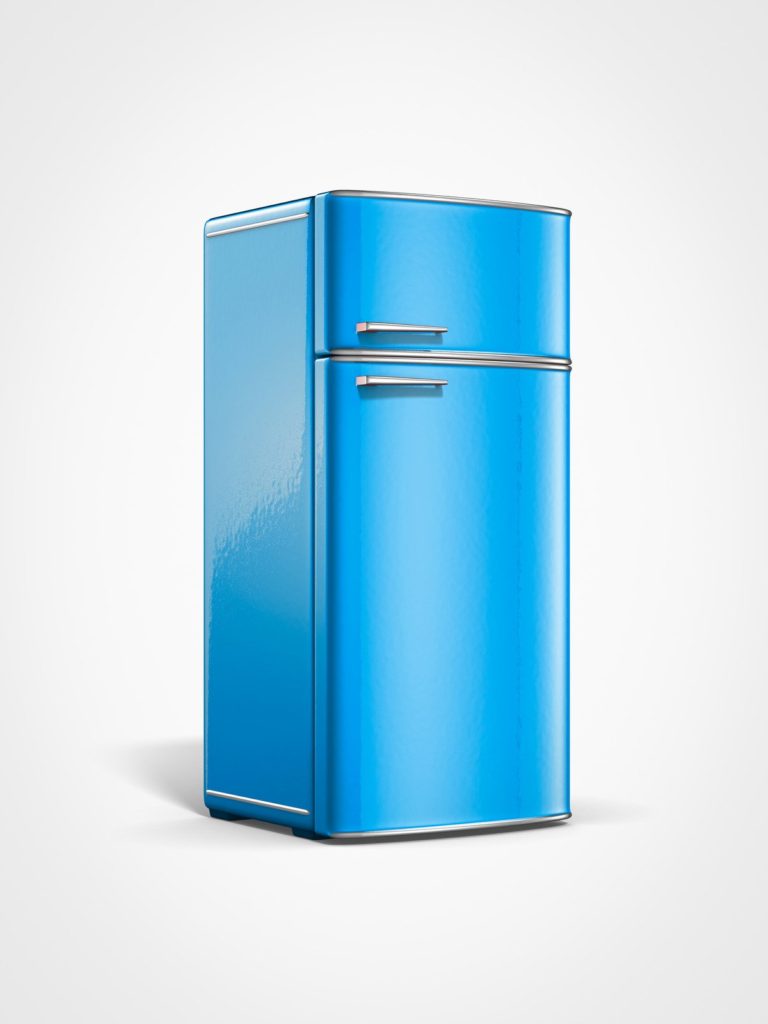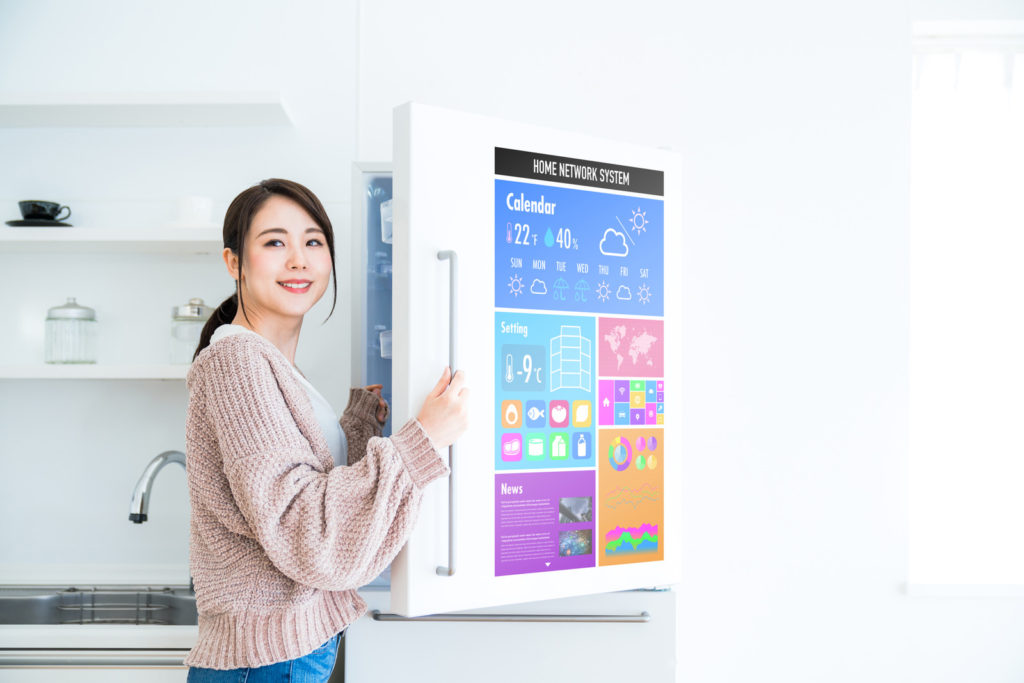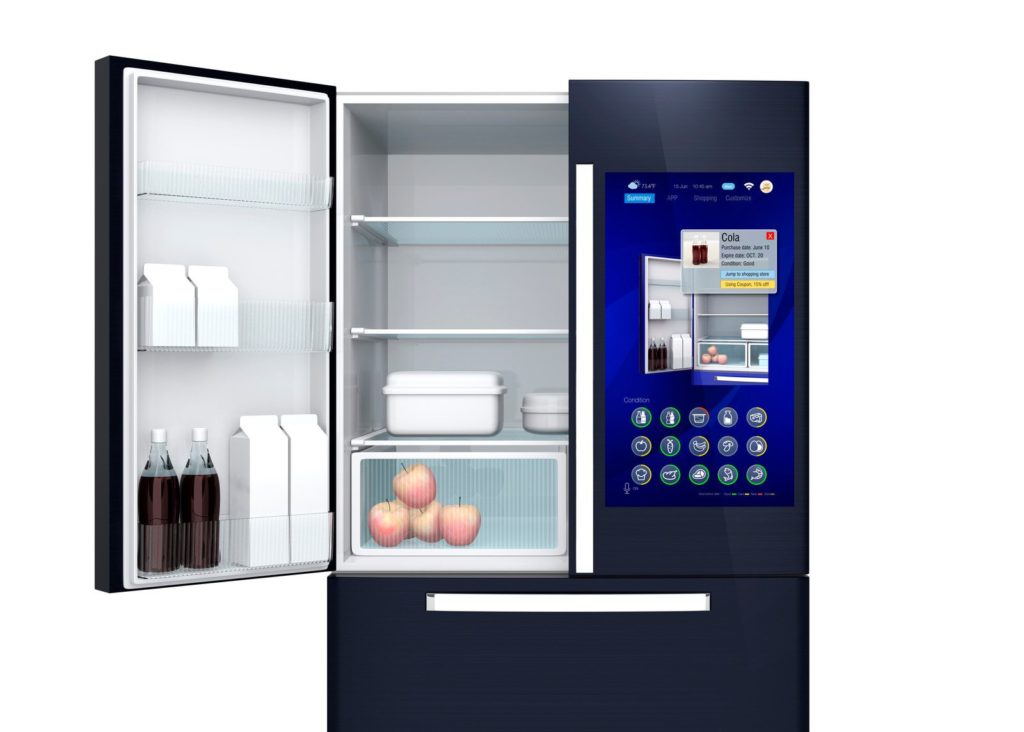Today’s appliances are not the same as those of your parents. With smart technology improving and making everything smarter, from your TV to your thermostat, appliances are no different. Refrigerators allow you to check on the food you have in your refrigerator using your phone and find recipes using the fridge’s touchscreen. Have commercial appliances, normally sold to restaurants, found their way into the average household? In this series of articles, we will explore where each of the following appliances is with regard to features, style, and price:
In this article, we are talking about Refrigerators and Freezers. For many years, the refrigerator—more commonly referred to as “the fridge”—could be found in every household kitchen. The refrigerator did not always have a place in American households. It took many years for the modern refrigerator to become today’s standard household item. With growing technology, smart fridges that allow us to remotely monitor our food stockpiles and save energy when we are not home, have taken the place of typical fridges in recent years. If you are thinking of purchasing a new refrigerator or freezer or upgrading to a smart appliance, read on.
History
Although refrigeration has its roots in ancient civilizations, in the late 19th century refrigerators became commercially successful. When Fred W. Wolf invented the first home electric refrigerator in 1913, he never could have foreseen the vast evolution that refrigerators and freezers would go through in less than a century. With the advancement of better technology and more innovative designs, refrigerators and freezers have continuously improved throughout history.
Technology and Refrigerators
Refrigerators may be the most important kitchen appliance in your home because they are directly related to our nutrition. Therefore, following the latest technology related to them is more interesting than any other appliance. Today using a combined refrigerator and freezer—mostly called a fridge freezer— is common. We will refer to them as fridges in this article.
Research shows that smart fridges are becoming more and more popular among people. According to the Global “Smart Refrigerator Market” Research Report 2022-2027, in 2020, the global Smart Refrigerator market size was $641.3 million, and it is expected to reach $1923.9 million by the end of 2027, with a CAGR (Compound Annual Growth Rate) of 17.0% between 2021-2027. Just as I mentioned in the previous articles about stoves and dishwashers, the latest technology found in kitchen appliances are the smart features. Fridge freezers are no exception. So, let’s see what features these smart fridges have which make them so popular.
Features of the Latest Refrigerators
While the first smart refrigerator connected to the internet using a barcode scanner, today’s smart refrigerators use Wi-Fi and internet technology.
- The connection to your phone allows you to access your fridge using your phone from anywhere This feature enables you to check the contents of your refrigerator via your phone or keep track of the expiration dates. Based on your smart refrigerator, you may need to manually register foods or scan the foods’ barcodes or RFID tags.
- Most smart refrigerators can alert you to simple issues that may need your attention, such as if you left the door open by accident, the ice has run out, or you need to change the water filter.
- Additionally, many of the smart refrigerators on the market today have cameras built in that let you see exactly what is in your fridge via your phone even when you are not home.
- The touchscreen interface provides plenty of interesting features. You can use this touch screen to connect to the internet, find recipes and have the fridge read the steps for you while you cook. Also, you can create a grocery list, shop online, send messages to others, play a video, and connect to the smart TV.
- Moreover, sensors have been added to smart refrigerators to make opening the door with full hands a breeze. Some models have sensors at the bottom that open the fridge door for you in response to foot motions. Moreover, the sensors react and automatically close the door if it is not closed tightly to keep your food fresh and stop cold air from escaping which could lead to increased energy costs.
- These smart fridge freezers are also environmentally friendly and can save time and money. They optimize your energy use by delaying energy-intensive tasks to off-peak hours.
Price
In 2000, the first smart refrigerator came on the market and cost over $20,000. While smart refrigerators are still somewhat more expensive than regular refrigerators, their cost has decreased significantly. The average smart refrigerator typically costs between $3,000 and $4,000. That is normally a few hundred dollars more than you would pay for a non-smart refrigerator. However, the price can vary greatly depending on the smart features.
Future
Nobody knows what the future fridge will look like, but we all know that they will continue to be smarter with technological growth. Future smart features may help us better understand our food’s nutritional value. This may include the ability to analyze the nutritional value of the food you have in the fridge and keep up with the current nutritional guidelines. This is a great way that could help people take control of their eating habits. Also, wouldn’t it be interesting to see fridges come in different shapes and sizes other than the typical box shape of today? They would be functional, beautiful, and very cool!






![Top 20 Reasons for Failing a Plumbing Inspection in Philadelphia [2025 Guide]](https://matrixgc.com/wp-content/uploads/2025/05/Common-issues-causing-failing-a-plumbing-inspection-in-Philadelphia.png)




0 Comments
Trackbacks/Pingbacks